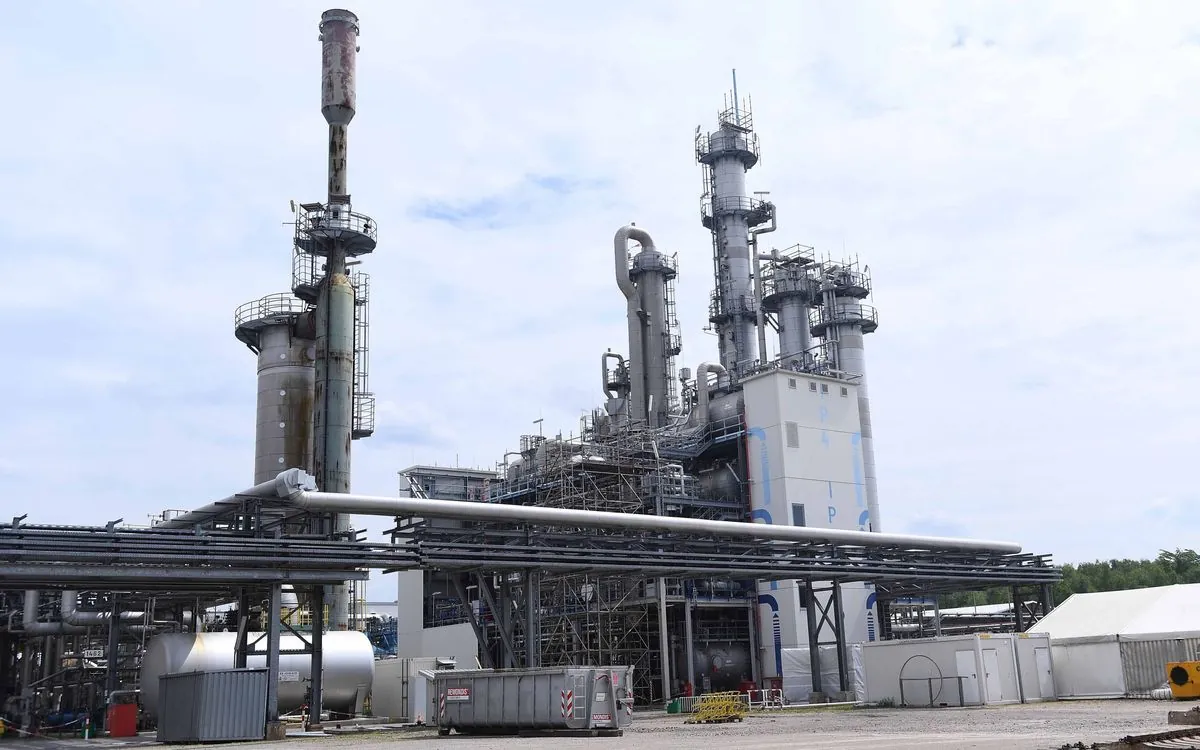German Chemical Firms Shift Research Abroad Amid Rising Costs
German chemical companies are relocating research operations overseas due to high costs and bureaucracy at home. Industry body VCI warns of slowing research spending and increasing foreign investments.

The German chemical industry, a cornerstone of the country's economy, is facing significant challenges as companies increasingly shift their research operations abroad. This trend, highlighted by the industry body VCI, is driven by a combination of factors including lower costs, reduced bureaucracy, and more attractive public funding programs in other countries.
Thomas Wessel, chairman of the research committee at VCI, stated, "High inland costs, poor earnings and worsening innovation conditions are making it increasingly difficult to conduct research in Germany." This sentiment reflects the growing concerns within the industry about maintaining Germany's competitive edge in chemical research and development.
VCI, representing nearly two thousand companies in Germany's third-largest sector, projects a slowdown in research spending growth from 4% in 2023 to just 2% in 2024. This deceleration is particularly worrying for an industry known for its research intensity and innovation.
A survey conducted by VCI revealed that one in three chemical companies conducting research outside Germany plans to increase their research expenditure abroad. This shift could potentially impact Germany's standing as the world's fourth-largest site for chemical research, following the United States, China, and Japan.

The German chemical industry, with its rich history dating back to the 19th century, has long been a global leader in innovation and production. It employs over 460,000 people and accounts for approximately 15% of Europe's chemical production. The sector is also a major exporter, with exports constituting more than half of its sales.
Despite these strengths, the industry faces mounting challenges. Rising energy prices and extensive bureaucratic procedures are eroding Germany's competitive advantage. This situation is particularly concerning given the industry's crucial role in supplying other major German sectors such as automotive and electronics.
However, it's not all gloomy news. The pharmaceutical industry, which VCI also monitors, shows some positive signs in response to recent government strategy decisions. This glimmer of hope suggests that targeted policy measures can potentially mitigate some of the challenges faced by the broader chemical sector.
German chemical companies are at the forefront of several important initiatives, including the development of sustainable and bio-based chemicals, digitalization efforts, and the pursuit of climate neutrality. These endeavors align with Germany's ambitious goal of achieving climate neutrality by 2045 and demonstrate the industry's commitment to innovation despite the current challenges.
As the situation evolves, it remains to be seen how German policymakers will respond to the industry's concerns and whether they can implement measures to retain and attract chemical research within the country's borders. The outcome of this situation could have far-reaching implications for Germany's economic landscape and its position in the global chemical industry.


































